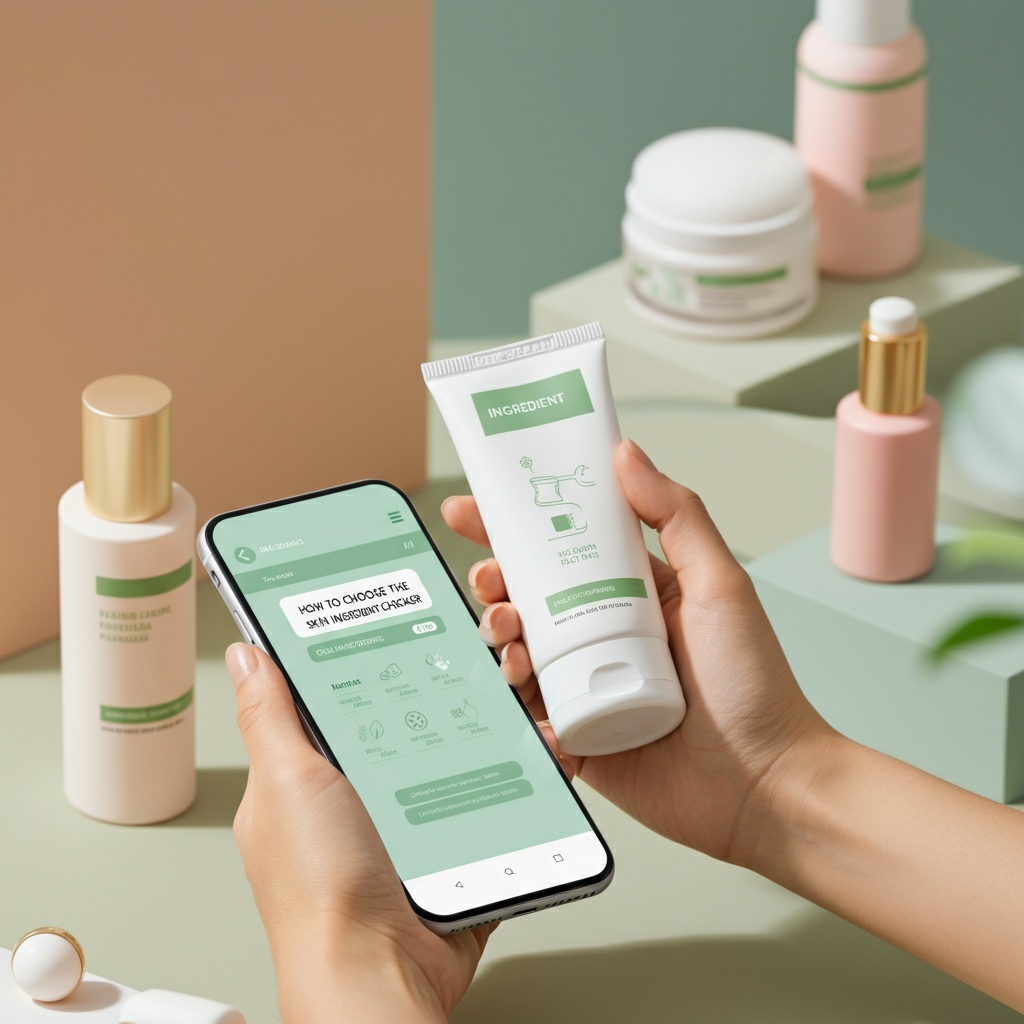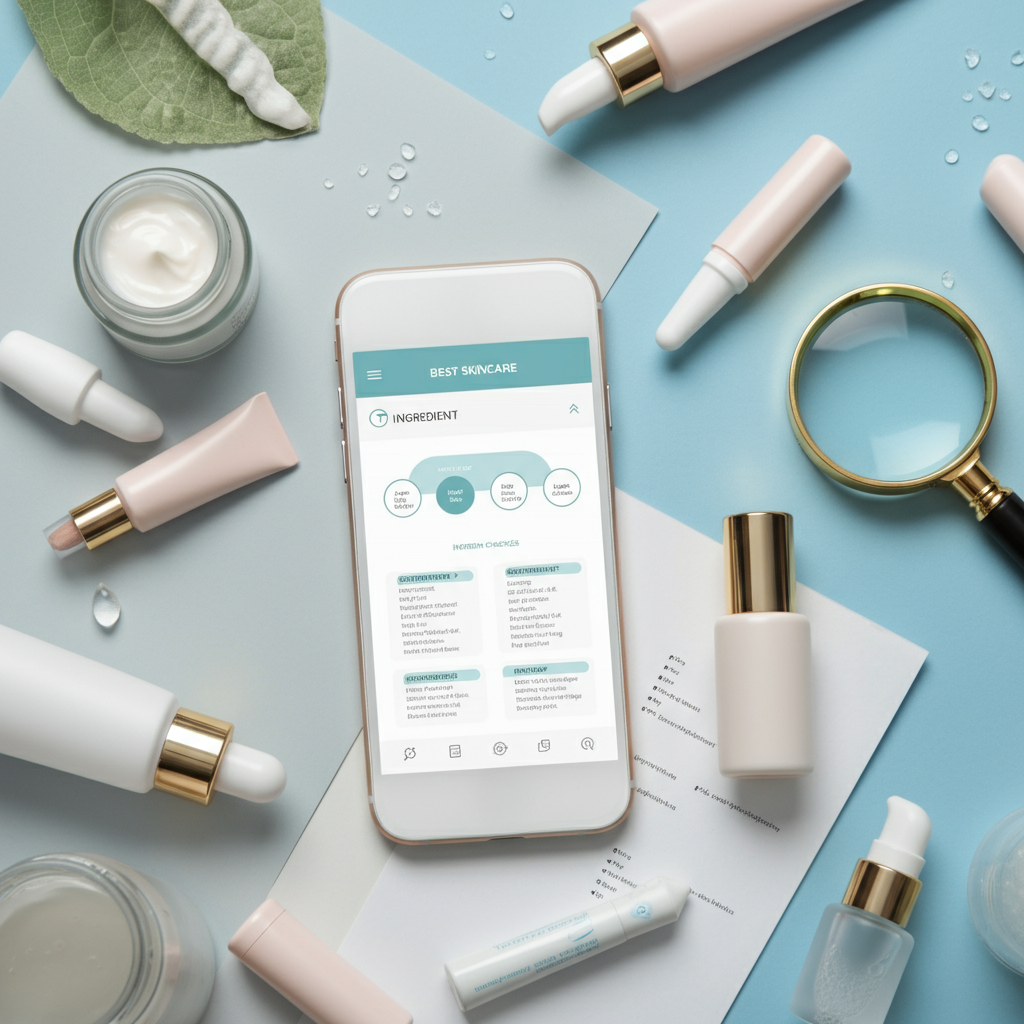1. INCIdecoder
Best for: Beginners who want easy-to-understand explanations
- Analyzes product ingredients and gives a breakdown of what they do
- Flags unsafe or controversial ingredients
- Great for newcomers learning about skincare
Pros:
- Free to use
- User-friendly interface
- Expands ingredient knowledge
Cons:
- Lacks advanced customization for specific skin types
2. Skincarisma
Best for: Customizing skincare routines based on your skin type
- Allows you to input your skin type (e.g., oily, dry, sensitive)
- Provides an ingredient analysis with suitability for your skin and concerns
Pros:
- Excellent for skin-specific needs
- Community reviews
Cons:
- Lacking detailed allergen analysis
3. CosDNA
Best for: Deep ingredient analysis
- Evaluates individual ingredients with safety ratings
- Highlights potential irritants and acne triggers
Pros:
- Ideal for advanced users
- Features a large ingredient database
Cons:
- The interface isn’t modern or user-friendly
4. EWG Skin Deep
Best for: Checking for harmful chemicals
- Focuses on product safety and sustainability
- Rates ingredients based on their hazard level
Pros:
- Great for health-conscious users
- Helps with eco-friendly choices
Cons:
- Somewhat limited product database
5. Think Dirty
Best for: Eco-friendly beauty enthusiasts
- Scans barcodes to deliver ingredient safety ratings
- Focuses on clean, non-toxic beauty products
Pros:
- Accessible via mobile app
- Simple sustainability indicators
Cons:
- Not as detailed for specific skin concerns
6. CodeCheck
Best for: On-the-go analysis via barcode scanning
- Scans product barcodes for instant ingredient breakdown
- Highlights allergens and vegan-friendliness
Pros:
- User-friendly and instant results
- Multi-purpose (also includes household products)
Cons:
- Mostly European-oriented product database
7. Beautyglab
Best for: Holistic approach to skincare
- Analyzes products while considering overall beauty needs
- Provides tips on product compatibility with other skincare ingredients
Pros:
- Comprehensive ingredient evaluation
- Great for multi-layered skincare routines
Cons:
- May have slower updates to its product database
8. Picky
Best for: Personalized skincare recommendations
- Uses your skincare profile to suggest products and flag ingredients
- Community-based platform with reviews and tips
Pros:
- Perfect for beginners and intermediates
- Personalized recommendations
Cons:
- Relatively new, so still growing its database
9. IS IT COMEDOGENIC?
Best for: Preventing clogged pores
- Focuses mainly on identifying non-comedogenic products
- Simple but effective for those with acne-prone skin
Pros:
- Niche focus on acne concerns
- Quick and easy to use
Cons:
- Limited to comedogenic ratings
10. Sephora Ingredient Glossary
Best for: Exploring popular beauty products
- A detailed glossary of ingredients in Sephora’s products
- Explains common skincare ingredients directly on the site
Pros:
- Clean database focused on trending brands
- Trusted by beauty insiders
Cons:
- Limited to Sephora’s inventory
11. Yuka
Best for: All-round ingredient safety
- Barcode scanner for instant ingredient reviews
- Rates safety of ingredients in simple terms
Pros:
- Easy-to-use app
- Covers a wide range of products
Cons:
- Focus leans toward Europe-based products
How to Choose the Right Skin Ingredient Checker

Not all ingredient checkers are created equal. Here are a few factors to consider while picking the best one for you:
- Purpose: Are you tracking allergens, sustainability, or acne triggers?
- User Interface: A simple app is usually better for beginners.
- Database Scope: Ensure the checker has your preferred products listed.
- Community Insights: Check for reviews and testimonials.
Most importantly, combine these tools with consultation from a dermatologist for the best results.
People Also Ask
What is the most accurate skincare ingredient checker?
Tools like INCIdecoder and CosDNA are commonly ranked as the most reliable for in-depth ingredient analysis.
Are these tools free?
Most ingredient checkers, including Think Dirty, INCIdecoder, and Picky, offer free versions with advanced features available in premium subscriptions.
How safe are skin product ingredients?
The safety depends on the formulation. Ingredient checkers can help you evaluate, but a consultation with a dermatologist is recommended for personalized advice.
Take Control of Your Skincare
Your skin is unique, and understanding what works for it doesn’t have to feel like solving a mystery. With tools like INCIdecoder and Skincarisma, learning about skincare ingredients has never been easier. Take advantage of these checkers to refine your routine, shop smartly, and glow confidently.
Want to take your knowledge to the next level? Explore ingredient checkers today and start your skincare transformation.
